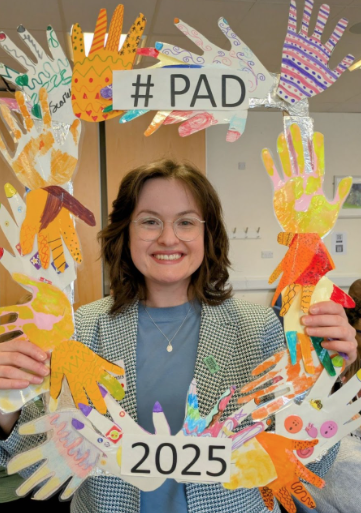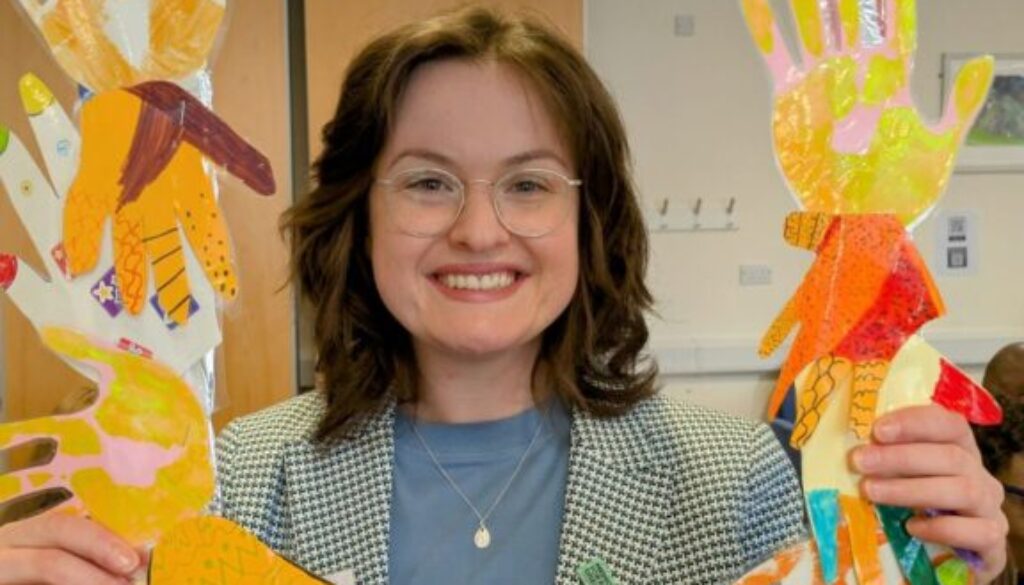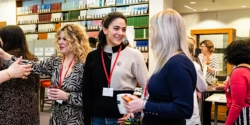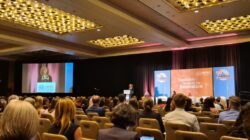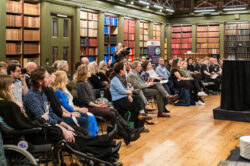Paediatric Academic Day 2025: Health inequities in the spotlight!
Paediatric Academic Day 2025: Health inequities in the spotlight!
At Medics for Rare Disease we have a vision of equitable healthcare for everybody, regardless of the prevalence of their health condition(s). So as you can imagine, I was delighted to be invited along to the 4th Paediatric Academic Day 2025 (PAD25) at the Royal Derby Hospital on 5th June 2025 to speak about the very real health inequities facing people living with rare conditions.
Inequalities vs. inequities – what’s the difference?
Health inequalities are measurable differences in health between different groups of people.
Let’s use two fictitious men as an example – Jim and John. Jim is 65 and Abdul is 75. Both men have the rare condition amyloidosis (a condition in which a protein called amyloid builds up in the body and prevents organs from functioning normally), but Jim developed it ten years earlier than Abdul. This is a measurable health difference, or inequality.
Health inequities, by contrast, refer to health differences between different groups of people that are unfair and avoidable.
These differences occur because, unfairly, some people have fewer opportunities to stay well than others. For example, different groups of people have unequal access to resources like good jobs, safe housing, and healthcare services. Equally, some groups of people are more likely to face discrimination than others, which could make it more difficult for them to get a job or access the support they need.
Abdul lives in a rural area with poor transport links and relies on his state pension. Jim, on the other hand, lives in London and had a successful career in the city. This means he has a good pension and can afford to live comfortably near the National Amyloidosis Centre at the Royal Free Hospital.
Abdul finds it difficult to access his local hospital because there aren’t any buses that he can take and taxis are too expensive. If he does manage to attend, hospital staff are very supportive, but because he’s the only person attending the clinic with amyloidosis, they are less familiar with the condition and less confident in managing his care. Abdul’s first language is Urdu and he finds it more difficult to understand medical terminology in English, but staff are unable to find an interpreter to help.
In contrast, Jim is able to pay for taxis to take him the short distance from his home to the National Amyloidosis Centre. Here, his care is led by experts who look after lots of people with his condition. As a result, Jim receives better, more co-ordinated support and is able to access research opportunities that are unavailable to Abdul at his local hospital.
Jim’s symptoms are better controlled compared with Abdul’s and he enjoys a better quality of life for longer. This is an example of a health inequity – because it is driven by unequal access to resources like money, transport and specialist healthcare.
Learning from experts
PAD25 gave clinicians and medical students the opportunity to get together to discuss how health inequities impact the people that they work with, and to discuss how these inequities can be addressed. Plus, we were joined by Prof Steve Turner, President of the Royal College of Paediatrics and Child Health, as keynote speaker!
Amongst the varied programme:
- Prof Damien Roland highlighted that black children presenting to A&E are less likely to receive appropriate pain relief than children of other ethnicities – an issue linked to systemic racism.
- Prof Ifeanyichukwu Okike spoke about how children from poorer backgrounds in Derby have more problems with their teeth than children from well-off families, and described local initiatives to tackle the problem.
- Dr Ogechi Odocha described the impact that creating content in her native language of Igbo has had on health outcomes amongst Igbo-speakers in Nigeria. You can view her Youtube channel here.
Of course, you couldn’t have a paediatrics conference without including children and young people, and so perhaps the highlight of the day was an art display by local children who joined us from Long Eaton Primary School!
Keeping rare disease in the spotlight
People living with rare conditions often face their own health inequities simply because their condition is uncommon. This was highlighted beautifully by a volunteer family who kindly shared the story of their daughter’s long journey to a diagnosis of Severe Combined Immunodeficiency (SCID).
Later, I was delighted to emphasise to the audience about how rarity can lead to gaps in awareness amongst professionals with significant consequences for people living with rare conditions.
And the solution? Well, naturally, I couldn’t miss the opportunity to highlight Rare Disease 101 on M4RD Learn.
A special thank you
A special thank you to all the speakers, contributors, volunteers and children who made PAD25 such a success under the direction of Prof Ifeanyichukwu Okike. I’m looking forward to my next trip to Derby already!
